CLL Treatments and Clinical Trials Archives
When it comes to treatment, CLL patients and their care partners have much to consider. There are often many options available, each with advantages and disadvantages. Some people may seek clinical trials, others may have few feasible options. Understanding treatment options, goals, and what to expect are vital to achieving the best possible outcome for you.
More resources for Chronic Lymphocytic Leukemia (CLL) Treatments and Clinical Trials from Patient Empowerment Network.
What Tests Should I Get Before Seeing a CLL Specialist?
What Tests Should I Get Before Seeing a CLL Specialist? from Patient Empowerment Network on Vimeo.
Chronic lymphocytic leukemia (CLL) patients are advised to have some testing before seeing a CLL specialist. Watch as Dr. Nadia Khan from Fox Chase Cancer Center explains tests that help predict CLL progression, treatment response, and time to treatment.
Related Programs:

|
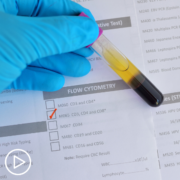
|

|
Transcript:
Mary Leer:
Here’s a question from Richard: I am a CLL patient currently on “watch and wait.” When is the right time and what tests should have been performed before seeing a CLL specialist?
Dr. Nadia Khan:
Richard, thank you for your excellent question. There are a number of tests with respect to CLL that help us to prognosticate more accurately, and those would include either a FISH panel, fluorescence in situ hybridization for CLL which identifies this common amplification and deletions that have been described in CLL. Additionally, an IgVH mutational test and a TP53 sequencing test would be the three basic prognostic tests used to identify what kind of CLL a patient has.
This testing should be repeated at any point wherein a patient is changing therapy or at any point where there’s a change in the clinical status of the patient. Outside of these standard tests, there are other molecular tests that can be ordered and are commercially available for use…for use by clinicians. These molecular tests can also identify changes within the CLL that can help to prognosticate at this time, outside of the standard tests that I mentioned to you, there are no proven benefits to other testing, but the results of additional testing can just really help inform your clinician about the likelihood of you needing treatment in the near future and the likelihood of response to therapy.
How Can Clinical Trials Be Accessed?
How Can Clinical Trials Be Accessed? from Patient Empowerment Network on Vimeo.
Clinical researcher Dr. Seth Pollack and patient advocate Sujata Dutta explain the benefits of participating in a clinical trial. They review important questions to ask your doctor and share advice for finding a trial.
Dr. Seth Pollack is Medical Director of the Sarcoma Program at the Robert H. Lurie Comprehensive Cancer Center of Northwestern University and is the Steven T. Rosen, MD, Professor of Cancer Biology and associate professor of Medicine in the Division of Hematology and Oncology at the Feinberg School of Medicine. Learn more about Dr. Pollack, here.
Sujuta Dutta is a myeloma survivor and empowered patient advocate, and serves a Patient Empowerment Network (PEN) board member. Learn more about Sujuta, here.
See More from Clinical Trials 101
Related Resources:
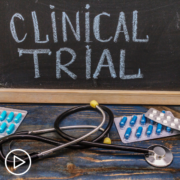
|
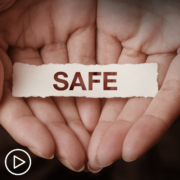
|

|
Transcript:
Katherine Banwell:
Sujata, there’s clearly a lot of hesitation and misconceptions out there. What would you say to someone who’s considering a trial but is hesitant?
Sujata Dutta:
I would say speak to your provider, speak to your doctor, and get all these myths kind of busted to say, “it’s going to be expensive” or whatever those questions are. And then, through that process also try and understand what is it that the study is trying to achieve? How is that going to be beneficial to you? So, in my instance, it wasn’t the last line of defense, it was just one of the processes or combos that would help me. And so, that was important for me to understand and then a little bit of education as well. So, I was asking, I have questions on my phone every time I meet my provider, and I did the same thing. So, I think that one of the good practices is keep your note of your questions and have those questions ready. And no question is silly, all questions are important. So, ask as many questions as you can and use that opportunity to educate yourself about it.
And maybe you realize, “No. I don’t think it’s working for me” or “I don’t think this trial is good for me.” But it’s good, important, to have that conversation with your provider, that’s what I would recommend highly.
Katherine Banwell:
Excellent. Thank you, Dr. Pollack, if someone is interested in participating, how can they find out about what trials are even available for them?
Dr. Seth Pollack:
Yeah. I mean, the best thing to do is to start just by asking your doctor if they know about any clinical trials. And a lot of the times the clinical trials are run at the big medical centers that may be closer to you, so you could ask your doctor if there’s any clinical trials at the big medical center even. Or I always think it’s good to get a second opinion, you could go get a second opinion at the big medical center that’s close to you and ask them what clinical trials are at your center.
And sometimes they’ll be conscious about some of the clinical trials that may be even run around the country. And you can ask about that as well.
Katherine Banwell:
Would specialists have more information about clinical trials than say a general practitioner?
Dr. Seth Pollack:
So, I specialize in rare cancers, so a lot of the times the general practitioners they’ve got my cell phone number, and they text me, and they say, “Hey, do you have a clinical trial going on right now?” And that happens all the time, but yeah, the specialists will usually because frankly there’s so much to know. And the general practitioners really have a lot to keep track of with all the different types of diseases that are out there. Whereas at the big centers, the specialists, part of their job is really to keep their tabs on what’s going on with the clinical trials.
So, they’re good people to ask, either your local doctor could reach out to them, or you could go get a second opinion and ask.
Sujata Dutta:
There’s also a lot of information, Katherine, on sites such as LLS, or PEN, or American Cancer Society that they also publish a lot of information. Of course, I would recommend once you have that information then vet it by your specialist, or whatever. But if you’re interested in knowing more about clinical trials in general and some that would work for you, then those are also some places to get information from.
Katherine Banwell:
That’s great information. Thank you, I was going to ask you about that Sujata. Well, before we end the program, Dr. Pollack, I’d like to get your final thoughts. What message do you want to leave the audience with related to clinical trial participation?
Dr. Seth Pollack:
Yeah. I think clinical trials it can be a very rewarding thing for a lot of patients to do, I think patients really like learning about the new treatments. And I think a lot of patients really like being a part of pushing the therapies forward in addition to feeling like sometimes they’re getting a little bit of an extra layer of scrutiny, because there’s a whole extra team of research coordinators that are going through everything.
And getting access to something that isn’t available yet to the general population. So, I think there’s a whole host of advantages of going on clinical trials, but you need to figure out whether or not a clinical trial is right for you.
Katherine Banwell:
Yeah. Sujata, what would you like to add?
Sujata Dutta:
Absolutely, I second everything that Dr. Pollack is saying. And in my personal experience I wouldn’t say everything is hunky-dory, everything is fine. I’m going through treatment, I have chemo every four weeks, I started with chemo every week. That’s when the logistics pace was really difficult because going to Mayo every week was not easy. But anyways, as the trial progress itself every four weeks, but as I said the benefits are huge because I have labs every four weeks. I meet my provider every four weeks.
So, we go through the labs and anything amiss, I’ve had some changes to my dosage because I’ve had some changes in the labs. And so, there’s a lot of scrutiny which I like, but the flip side, for maybe some maybe like, “I have to have chemo every four weeks. Do I want to do that or not?” Or whatever. In my case, I knew it, and I signed up for it, and I’m committed to doing that for two years. And so, I’m fine with that. So, I would say all in all, I’d see more benefits of being in a clinical trial. One, you’re motivated to give back to the community. Two, you are being monitored and so your health is important to your provider just as it is to you. And so, I highly recommend being part of a trial if it works for you and if you’re eligible for one.
Are Clinical Trials Safe?
Are Clinical Trials Safe? from Patient Empowerment Network on Vimeo.
Clinical researcher Dr. Seth Pollack explains the safety protocols in place for clinical trials, including how data is reported and protected. Patient advocate Sujata Dutta goes on to share her experience in a clinical trial.
Dr. Seth Pollack is Medical Director of the Sarcoma Program at the Robert H. Lurie Comprehensive Cancer Center of Northwestern University and is the Steven T. Rosen, MD, Professor of Cancer Biology and associate professor of Medicine in the Division of Hematology and Oncology at the Feinberg School of Medicine. Learn more about Dr. Pollack, here.
Sujuta Dutta is a myeloma survivor and empowered patient advocate, and serves a Patient Empowerment Network (PEN) board member. Learn more about Sujuta, here.
See More from Clinical Trials 101
Related Resources:

|

|
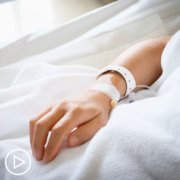
|
Transcript:
Katherine Banwell:
Some patients feel that clinical trials aren’t safe, is that the case, Dr. Pollack?
Dr. Seth Pollack:
No. I mean, we go through, as I was saying before, these clinical trials are extensively vetted. So, the safety is, of course, one of the things that we look most carefully about. But as I was saying before, like with any treatment’s cancer treatments have toxicity, that’s a common problem. So, and when you’re dealing with something brand new sometimes there is a little bit more risk. So, when you’re talking about these very early-stage Phase I trials you probably want to talk to your doctor about what sorts of toxicities you can expect and where they are in the Phase I trial. Are you the first ever to receive this new drug? And if you are nobody’s making you go in the clinical trial, so it can only help to get more information. Right? So, you should ask your team about it, you should find out.
Most of the time there’s going to be a lot of patients that have been treated already, I mean, they can’t give you definitive data about how things are going but they can maybe say, “Hey. I’ve already treated a few patients on it, and they seem to be doing great.”
Katherine Banwell:
So, you need to weigh the pros and cons of the trial.
Dr. Seth Pollack:
You do need to weigh the pros and cons. Now, when you’re talking about these Phase IIs and Phase IIIs, I mean, these are drugs now that have really been vetted for their safety and we have a lot of data about it. And even the Phase Is, it’s not like these things are coming out of nowhere, they’ve been scrutinized, we really expect that they’re going to be safe but we’re doing the trial to prove it. So, it’s a good thing to ask about.
Katherine Banwell:
Yeah, yeah.
Sujata Dutta:
Yeah. I would also add that it’s so closely monitored that safety is a top priority, it’s front and center. So, the advantage, I think, with being on a trial is the close monitoring of the patient exactly for this reason.
If something is amiss it’s going to be picked up as quickly as possible and you’re any issues are going to be addressed as soon as. So, I think, safety does get addressed pretty quickly.
Katherine Banwell:
Good.
Can data from trials even be trusted? Dr. Pollack, is that the case?
Dr. Seth Pollack:
Well, of course, I mean, it can be trusted. Because the thing with the clinical trial data is that you really see the data and there’s all kinds of scrutiny making sure that the data is reported accurately. Now, there’s a whole other conversation we could have as to whether we could interpret the data differently. And sometimes that is an issue that comes up, but the data is reported very accurately.
So, and there are statistics that are very well understood, and the bar is actually pretty high to say one arm of the trial was better than the other arm of the trial. So, if patients have better survival on one arm, if we say that, usually it means they did considerably better. Enough better that it wasn’t a random chance that one extra patient did better on the treatment arm. No. There were enough patients that did better that the statisticians can go through it with a fine-toothed comb. And they can be absolutely sure up to exactly how many percent sure they can tell you, 0.05 percent or less chance of error that this was a real difference between the study arm and the standard of care arm.
Sujata Dutta:
I think you mentioned too that one is trust, and one is data. So, Dr. Pollack mentioned a lot about the data, I think the trust is also a very important thing. I like to go with positive intent because I do not have a reason to believe my doctor has some ulterior motive to suggest a clinical trial. And so, I trust them wholeheartedly. The first hurdle is you have to trust the system or what is being proposed to you because, as Dr. Pollack said, it’s gone through a lot of vetting. A recommendation to be part of a trial itself is vetted by your doctor when they make the recommendation. So, have faith, trust, that they are making a good recommendation. And then, of course, the data, I don’t know much about that, but as I said, I trust it. So, I would trust the data too.
Katherine Banwell:
Of course. Of course. Some patients feel like they’re going to lose their privacy. Sujata, did you feel that at all?
Sujata Dutta:
No. Not at all.
I mean, with everything else that is also taken care of, my information, or whatever, is not made available to anybody. And so, obviously there’s a lot of people will get those, and I had a huge pile of paperwork to go through, but I think that’s a good thing. For my peace of mind that I knew that my information was not going to be shared outside of the study, the trial, etc., and things. So, no, I don’t think that’s a problem.
Katherine Banwell:
Beyond these misconceptions is there anything else you hear? Dr. Pollack?
Dr. Seth Pollack:
No. I mean, look, in our crazy modern world there’s concerns everywhere, but the clinical trial is very, very careful. Whenever possible we use the medical chart.
And then, we have a very stringently protected database that’s storing people’s information, but it’s deidentified. So, I mean, we have a separate key to figure out who the patients are and then we try to limit the use of the patient’s name or any identifying information about them beyond that. So, and your information is not shared. For example, if there’s a drug company involved in the trial, your information is not shared with the drug company, you have a new identifier that is unique and not traceable back to you that is provided to whoever, if there’s outside groups working on the trial with you. So, your information is very carefully protected, and everyone is very conscious about issues regarding privacy.
Katherine Banwell:
That’s great to know.
Are Clinical Trials a Logistical Nightmare?
Are Clinical Trials a Logistical Nightmare? from Patient Empowerment Network on Vimeo.
PEN board member and myeloma survivor Sujata Dutta shares how her family managed the logistics of her clinical trial participation.
Sujuta Dutta is a myeloma survivor and empowered patient advocate, and serves a Patient Empowerment Network (PEN) board member. Learn more about Sujuta, here.
See More from Clinical Trials 101
Related Resources:

|

|

|
Transcript:
Katherine Banwell:
The logistics will be a nightmare and I don’t live close to a research hospital. Sujata, did you have that issue?
Sujata Dutta:
Yeah. That’s a very interesting one, and actually I’ll share my experience. I did have this concern about logistics, because I got my transplant at Mayo Rochester, which is a two-hour drive from where I live. And so, when I got to know about it literally me and my husband were like, “Oh, my gosh. What are we going to do?” It’s not just me, my husband is my caregiver, he has to take the day off to drive me to Mayo, wait through my treatment, and drive me back. Then we have boys who were distance learning at the time, and so what do we do with them? Do we drop off a friends or take a favor from a friend? And so on and so forth.
So, the logistics was an issue and we literally said, “Thanks but no thanks” and we walked out of the room. And we came downstairs, and my husband was like, “What the heck?” My team understands everything, and I fortunately work for a very good employer, and they understand everything, people first. And so, he was like, “I can figure this out. Let’s do it if this is what’s going to help you, then let’s just figure this out.” And at that time, it was so good, and I have total respect for Dr. Pollack.
You and everybody in this medical community. My doctor who leads the trial at Mayo, she actually said, “Why don’t you check with your local cancer center? Maybe they are also approved by FDA, and they may be able to administer this treatment to you.” Unfortunately, at that time they weren’t but we were like, “We’re going to go ahead with the trial. It doesn’t matter.” My husband was like, “I’ll take the day off, you don’t worry about it.” And then, four months later my institute did get approved by FDA, and so I was able to transfer from Mayo to my local cancer center, Abramson Cancer Center, which is 20 minutes from home. And so, there are options, I know that it can be an issue and it can be overwhelming at the time which was the case with me. But I was able to overcome that, so maybe there are options available that the patients can consider.
Is It Expensive to Participate in a Clinical Trial?
Is It Expensive to Participate in a Clinical Trial? from Patient Empowerment Network on Vimeo.
Is there a financial cost to participating in a clinical trial? Dr. Seth Pollack explains how clinical trials participation is billed and potential financial impacts.
Dr. Seth Pollack is Medical Director of the Sarcoma Program at the Robert H. Lurie Comprehensive Cancer Center of Northwestern University and is the Steven T. Rosen, MD, Professor of Cancer Biology and associate professor of Medicine in the Division of Hematology and Oncology at the Feinberg School of Medicine. Learn more about Dr. Pollack, here.
See More from Clinical Trials 101
Related Resources:

|

|
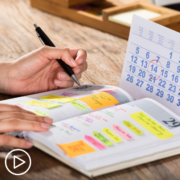
|
Transcript:
Katherine Banwell:
Is this fact or fiction; it will be expensive? Dr. Pollack?
Dr. Seth Pollack:
That’s fiction because the way the clinical trials work is we go through everything very carefully to figure out what things are standard and what things are unique to the clinical trials. So, if you are getting chemotherapy, you’re going to need blood work, you’re going to need the chemotherapy drugs, you’re going to need some sort of imaging, CT scan, or whatever your doctor would do.
And all those sorts of things are considered standard, so your insurance company is built for those. Then there’s a bunch of things that are considered research. For example, there’s special research bloodwork, maybe there’s an investigational agent that’s being added to standard chemotherapy. Those things are billed to the study, so you don’t actually have to pay anything extra, it’s just like you’re getting the normal treatment as far as you’re concerned. I mean, that’s the way it always is, and I haven’t had any of my patients ever get into real problems in terms of the finances of these things. It always works very straight forward like standard therapy.
Is a Clinical Trial a Last-Resort Option?
Is a Clinical Trial a Last-Resort Option? from Patient Empowerment Network on Vimeo.
Are clinical trials only meant as a last-resort option? Dr. Seth Pollack debunks this common clinical trial misconception and explains why he feels patients should participate when the opportunity arises.
Dr. Seth Pollack is Medical Director of the Sarcoma Program at the Robert H. Lurie Comprehensive Cancer Center of Northwestern University and is the Steven T. Rosen, MD, Professor of Cancer Biology and associate professor of Medicine in the Division of Hematology and Oncology at the Feinberg School of Medicine. Learn more about Dr. Pollack, here.
See More from Clinical Trials 101
Related Resources:

|

|

|
Transcript:
Katherine Banwell:
Right. And another concern that people have is; clinical trials are my last resort treatment option. What do you say to that Dr. Pollack?
Dr. Seth Pollack:
Yeah, no. That’s a common misconception. So, we like to have clinical trials for every phase of the patient’s cancer journey because we’re trying to make every single part of the cancer journey better. So, I think a lot of people think that, okay, when they hit their last resort that’s kind of the time to try something new. Even in the very earliest parts of the cancer journey, even in the diagnosis phase sometimes we’ll have clinical trials where we’ve tried different images, modalities, or look at things in a different way in terms of the biopsies.
But then, in terms of the cured-of treatments, when somebody is in the cured-of setting we don’t usually try something very brand new. But a lot of the times we’ll try something that is very affective for patients at the end, and we want to try and make the cured-of strategy even better. So, a lot of the times for those patients we’ll have new therapies that are very safe and established that we’re trying to incorporate earlier into patients’ treatments because we know they work really well, right? And then, even in patients who have incurable cancer a lot of times it’s better to try a clinical trial earlier on just because sometimes the clinical trials have the most exciting new therapies that are bringing people a lot of hope.
And a lot of the times you want to try that when you’re really fit and when you’re in good shape. So, that’s why I think that you really want to think about doing a clinical trial when the opportunity arises.
Katherine Banwell:
Yeah. Beause it could be beneficial to you and it’s certainly going to be beneficial to other people.
If I Participate in a Clinical Trial, Will I Be a Guinea Pig?
If I Participate in a Clinical Trial, Will I Be a Guinea Pig? from Patient Empowerment Network on Vimeo.
Does participating in a clinical trial make you a “guinea pig” for new treatments? Clinical researcher, Dr. Seth Pollack, provides a clear explanation of clinical trial safety protocols.
Dr. Seth Pollack is Medical Director of the Sarcoma Program at the Robert H. Lurie Comprehensive Cancer Center of Northwestern University and is the Steven T. Rosen, MD, Professor of Cancer Biology and associate professor of Medicine in the Division of Hematology and Oncology at the Feinberg School of Medicine. Learn more about Dr. Pollack, here.
See More from Clinical Trials 101
Related Resources:

|

|

|
Transcript:
Katherine Banwell:
Well, I’d like to address a list of common concerns about clinical trials that we’ve heard from various audience members prior to this program.
And this is probably the most common; I will be a guinea pig. Dr. Pollack, how do you respond to that?
Dr. Seth Pollack:
Yeah. I know that is a common concern. I mean, I think the thing that people have to understand about clinical trials is there is just so much oversight that happens for these clinical trials. Every document, every procedure, is scrutinized by multiple committees. There’s a scientific review committee, there’s a review board, IRB, that reviews these. Many of these trials are reviewed by the FDA and they’re reviewed by your doctor and your doctor’s colleagues that are also participating in the trial. So, every detail is discussed at length.
In fact, a lot of the times there’s a lot more structure to being on the clinical trial than just routine clinical care because they’ve thought so thoroughly about when everything needs to be done and what the right timing of is for the various procedures.
A Patient Shares Her Clinical Trial Experience
A Patient Shares Her Clinical Trial Experience from Patient Empowerment Network on Vimeo.
Sujata Dutta, an empowered patient advocate, explains why she felt participating in a clinical trial was the right decision to treat her myeloma.
Sujuta Dutta is a myeloma survivor and empowered patient advocate, and serves a Patient Empowerment Network (PEN) board member. Learn more about Sujuta, here.
See More from Clinical Trials 101
Related Resources:

|

|

|
Transcript:
Katherine Banwell:
Sujata, I understand that you went through a series of treatments for your multiple myeloma, which is a type of blood cancer, including a stem cell transplant.
At what point did you and your doctor consider a clinical trial might be best for you?
Sujata Dutta:
Yes, you’re right. I was diagnosed with multiple myeloma in December, and so the line of treatment or the standard protocol is that you go through what is called an induction therapy. Which is like a few cycles of chemotherapy which get you ready for a transplant. And the transplant, the hope is that it kind of washes away, or cleans off all the cancer cells for you, or at least brings the cancer to a very, very minimal level. And I did go through six rounds of chemo which got me ready for the transplant, and I went through the transplant in June of 2020. However, I’m amongst the very few, small percentage of people that just did not respond with the transplant. So, I was at the same point as where I started. So, it was a little bit disappointing, but my doctors were there to help me understand the situation. It was a hard pill to swallow.
But anyways, there were options. And that’s what I feel very hopeful about with multiple myeloma is that there are so many options available today through treat, or to at least bring the disease under control to a very large extent. And I expressed a desire to be in a trial very earlier on, so my doctor did know that I would lend a year or two listening to what the trials were. And it just so happened that there was a trial that was very apt in my situation, somebody who had gone through a transplant. They have some criteria, and I was able to meet that criteria. And so, for me, it seemed to be the right decision to make. And so, that’s how I agreed to be part of the trial.
Katherine Banwell:
Can you go into some detail about why you thought a clinical trial was a best thing for you?
Sujata Dutta:
Yeah. So, initially before knowing much about the strain that I’m a part of, I just had the desire to be part of a trial because I was always in awe of patients who had been in trials before me.
And because of whom I was benefiting. But whatever regiments, medications, combos, whatever was happening. And so, from that perspective I always wanted to give back in some way. Unfortunately, we are having more people being diagnosed with cancers, with multiple myeloma, and so I was very motivated to do something for the community that I was now part of. And so, I had my transplant at Mayo, and I knew that they had a whole bunch of trials and had access to different types of trials. So, that was my first motivation and it just so happened that, as I said, my experience with transplant didn’t go the desired way. And so, when I heard that there was a possibility that I could be part of a trial, I kind of leaned into actually agreeing to be part of that.
Katherine Banwell:
Yeah. It sounds like that was the next step for you.
Sujata Dutta:
Yup.
What Is a Clinical Trial and What Are the Phases?
What Is a Clinical Trial and What Are the Phases? from Patient Empowerment Network on Vimeo.
How do clinical trials work? Dr. Seth Pollack, a clinical researcher, defines clinical trials and explains what occurs in each of the phases.
Dr. Seth Pollack is Medical Director of the Sarcoma Program at the Robert H. Lurie Comprehensive Cancer Center of Northwestern University and is the Steven T. Rosen, MD, Professor of Cancer Biology and associate professor of Medicine in the Division of Hematology and Oncology at the Feinberg School of Medicine. Learn more about Dr. Pollack, here.
See More from Clinical Trials 101
Related Resources:

|

|

|
Transcript:
Katherine Banwell:
Let’s start with a basic question, Dr. Pollack. What is a clinical trial?
Dr. Seth Pollack:
Yeah. It’s a basic question, but actually, sometimes, it can be harder to answer than you might think.
I think everybody has an idea in their mind about what a clinical trial is, you’re going to test a new approach. But actually, there’s a whole variety of different things that can be a clinical trial, right? A clinical trial a lot of the times is testing a new drug, could be testing something for the very first time, could be testing something in combination with other drugs for the very first time. It could be testing a standard approach but doing it in a new way. It could even be giving less treatments than we usually do. For example, if there’s a very intense, harsh, standard of care treatment we might even have a clinical trial where we try a little bit less and see that patients do just as well. So, all of those things are clinical trials, but really the clinical trial in its heart is a very organized and careful approach to testing a new treatment strategy for patients.
Katherine Banwell:
Okay. What are the phases of a clinical trial?
Dr. Seth Pollack:
Yup. So, the Phase I clinical trial is usually when we’re testing something for the first time in however we’re doing it. So, it could be the first time we’re testing a new drug, or the first time we’re testing a drug in combination with other drugs. And the real thing about a Phase I trial is that the main goal of the trial is to look at the safety and tolerability of the regiment. That doesn’t mean that we’re not really trying to figure out if the regiment works, I mean, that’s also one of the most important things. But the most important thing for a Phase I trial is making sure that it’s safe and tolerable. A Phase II trial is where we, sort of, shift and we’re still making sure, and double checking, that the drug is, but now our main focus becomes on the efficacy of the strategy.
So, now we’re trying to really figure out if this is a strategy that seems affective enough to go to a Phase III. And a Phase III is a big multi-center trial. Frequently those will be placebo controlled where a lot of the times there’ll be randomized trial where we really try to absolutely prove, beyond a shadow of a doubt, that, that strategy is affective. And those are most of the types of trials that patients will encounter.
Katherine Banwell:
Okay. Thank you for providing clarity around the phases.
Will CLL Watch and Wait Be Redefined for Patients?
Will CLL Watch and Wait Be Redefined for Patients? from Patient Empowerment Network on Vimeo.
Watch as CLL specialist, Dr. Nadia Khan from Fox Chase Cancer Center explains the current watch and wait strategy for CLL patients and ongoing studies exploring earlier interventions for patients with high risk disease features.
Related Programs:

|
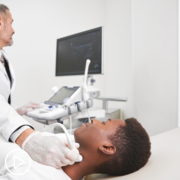
|

|
Transcript:
Mary Leer:
Karen asks, with many new therapies available, will watch and wait be redefined for CLL patients?
Dr. Nadia Khan:
What an excellent question, Karen. Currently, the strategy for CLL patients is to institute therapy when there is likely to be a benefit with the intervention, and there are studies that are ongoing looking at earlier intervention with oral therapy, and once we see the readout for patients with particularly high-risk features. I think it is possible that we’ll have an alternative strategy for those patients.
Thankfully, our CLL patients live very long lives, and what we’ve come to see over decades of treatment experience with our CLL patients is that early intervention to date has not resulted in longer…longer survival. So at this point, it’s not something that’s recommended, but we may have more information soon.
What Tests Reveal If CLL Treatment Is Working?
What Tests Reveal If CLL Treatment Is Working? from Patient Empowerment Network on Vimeo.
Some chronic lymphocytic leukemia (CLL) patients may wonder how they can check to see if treatment is working. Watch as Dr. Nadia Khan from Fox Chase Cancer Center answers a viewer’s question and provides insights on what tests are used in assessing response to CLL treatment.
Related Programs:

|

|

|
Transcript:
Mary Leer:
Dr. Khan, here’s a question that I think many are probably thinking of right now, what tests do you give patients to see if CLL treatment is working?
Dr. Nadia Khan:
Thank you, Jessica. During the course of CLL treatment and at the end of a time-limited treatment course, we’re assessing for responses, so as a patient is going through their treatment, we may decide to re-image to determine if there has been debulking of lymph nodes. And depending on the treatment that we’re administering and where the lymph nodes are located, we may decide to do imaging sooner or later, so for example, if there are palpable lymph nodes while a patient is on therapy, and we can measure these readily by physical exam in the clinic, we may not feel as compelled to re-image at an early time point, if there is valiantly or in large seen that is hard to palpate. And we want to understand if treatment is working after approximately three to four cycles of therapy, we would assess for a good response to treatment if clinically, it also does appear that patients are responding, and if there was any question as to respond, we would image at an earlier time point when patients are being treated with a venetoclax-based (Venclexta) regimen and there is significant adenopathy or an enlarged spleen, we may reassess the size of lymph nodes and spleen during the course of venetoclax ramp-up to determine if patients can be transitioned from inpatient to outpatient ramp-up.
Can Supplements Be Taken During CLL Treatment?
Can Supplements Be Taken During CLL Treatment? from Patient Empowerment Network on Vimeo.
Some chronic lymphocytic leukemia (CLL) patients may wonder about interactions with their usual supplements. Watch as Dr. Nadia Khan from Fox Chase Cancer Center shares advice about supplements and other things CLL patients may be taking for health concerns.
Related Programs:
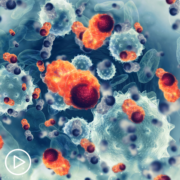
|

|

|
Transcript:
Mary Leer:
Okay, here’s a question that Sandra asks, “I’m preparing for CLL treatment, can I take my vitamins, herbs, or other supplements during treatment?”
Dr. Nadia Khan:
Thanks for that excellent question, Sandra. It’s so important to review all of your medications with your provider before starting any therapy during the course of your CLL treatment. Drug interactions with herbals and over-the-counter medications can result in serious side effects, some over-the-counters and herbals can inhibit the effectiveness of CLL therapy. So it’s important to discuss these with your provider on a case-by-case basis.
What Is CAR T-Cell Therapy in CLL?
What Is CAR T-Cell Therapy in CLL? from Patient Empowerment Network on Vimeo.
Chronic lymphocytic leukemia (CLL) patients have the option of CAR T-cell therapy in some cases. Watch as Dr. Nadia Khan from Fox Chase Cancer Center explains CAR T-cell therapy, access to the treatment, and which CLL patients are eligible.
Related Programs:
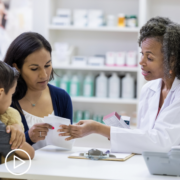
|
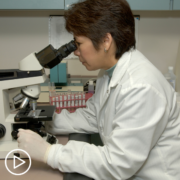
|

|
Transcript:
Mary Leer:
Yolanda’s question is, what is CAR T-therapy and who is eligible?
Dr. Nadia Khan:
Thank you, Yolanda. This is a question that I get asked very frequently. CAR-T therapy is an exciting cellular therapy that has been FDA-approved in a number of lymphomas, and it is currently not FDA-approved for patients with CLL. So at this time, CLL patients can receive CAR-T therapy in the setting of a clinical trial only, and it is typically reserved for those patients who have progressed or relapsed after multiple lines of therapy and for whom there is no alternative therapy for consideration. Often, it is considered in the context of the clinical trial prior to the use of allogeneic stem cell transplant, because the results of allo transplant and CAR-T seemed to be fairly comparable. CAR-T therapy, however, is much better tolerated than allo transplant, both of these modalities are very rarely employed for our CLL patient today because of the very effective targeted therapies and immunotherapies that we have to use.
Mary Leer:
Dr. Khan, Chuck’s question is, what are the side effects of CAR T-cell therapy?
Dr. Nadia Khan:
Thank you, Chuck. For your excellent question, CAR-T-therapy is associated with two main types of side effects, one is Cytokine Release syndrome or CRS, which happens within the first two weeks of receiving CAR cells, and that can manifest as fevers, chills, a drop in blood pressure, shortness of breath, and the requirement of oxygen. When that happens to patients, there are medications that are given to help improve those cytokine-mediated events. Another major side effect with CAR-T therapy is neurotoxicity, which also happens within the first 14 days in some patients who receive CAR therapy, and that can manifest as anything from a headache to more concerning confusion, seizures and a coma. CRS happens commonly in patients who receive party therapy and is usually managed very successfully with anti-inflammatory therapies given intravenously in the hospital and can be used for patients even who get outpatient CAR-T therapy.
Dr. Nadia Khan:
When patients do suffer with neuro toxicities, intravenous therapies are also employed to combat that, and when necessary, patients might require escalation to an intensive care setting when these toxicities are very severe.
Mary Leer:
Dr. Khan, is CAR T therapy a cure for CLL?
Dr. Nadia Khan:
Thank you for your question, Bernard. CAR-T therapy has been curative for a minority of patients who have been treated with CARs on clinical trials, and unlike other lymphomas In CLL, there hasn’t been an FDA approval as yet for CAR-T therapy, and we are hopeful for that to change in the future as CARs are modified and may potentially become more effective at eradicating the CLL and hopefully resulting in better side effect profiles and patients who do receive CAR-T therapy, the majority of patients who have received CARs in CLL studies have not had durable remission, unfortunately.
Mary Leer:
Dr. Khan, what is conditioning therapy and why is it given prior to infusion of the CAR T cells?
Dr. Nadia Khan:
Thank you, Samuel. Conditioning therapy is a course of – a briefer course of chemotherapy that’s given just prior to CAR-T therapy, really to prepare the body in a way to receive the CARs, and it makes the CARs more effective when there has been a level of immunosuppression to allow the CARs to expand more freely after they have been re-infused into a patient.
How Often Do CLL Patients Develop a Second Gene Mutation?
How Often Do CLL Patients Develop a Second Gene Mutation? from Patient Empowerment Network on Vimeo.
Chronic lymphocytic leukemia (CLL) patients can sometimes develop a second gene mutation. Watch as Dr. Nadia Khan from Fox Chase Cancer Center shares how common it is to develop a second mutation and when it’s important to retest for genetic changes.
Related Programs:

|

|
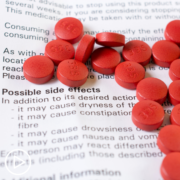
|
Transcript:
Mary Leer:
This question comes from Laurie. How common is it for CLL patients to develop a second gene mutation?
Dr. Nadia Khan:
Laurie, Thanks for that question. It is not common for most call patients to have significant alterations in the genetic landscape of the CLL. With that being said, there are a few notable exceptions for CLL with TP53 dysfunction or complex cytogenetics, there is a higher likelihood that there will be genetic instability in those CLL clones. Therefore, it’s important to retest for changes if there is a change in the biology of the CLL, if there is a progression on therapy, for example, or at the time when a new therapy is planned.



